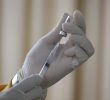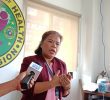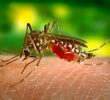By Mai Gevera
Health executives in Davao region are proud on the region�s good and established blood services program.
Department of Health regional director Dr. Paulyn Rossel-Ubial bared that the region has the highest number of local government units that have been awarded with the National Sandugo Special Award that includes Tagum city, Panabo city, and the Compostela Valley Province.
The Davao Regional Hospital located in Apokon, Tagum City is said to have sufficient supply of blood for its patients. � Other provinces like Bulacan encountered problems on how to source out blood supply. But in DRH, we are confident to say that we have enough supply.� DRH chief of hospital Dr. Romulo Busuego said.
With the national policy of closing commercial blood banks, the DOH and other government affiliated blood centers are pushed to add more effort in sourcing out blood supply from voluntary blood donors.
Dr. Ubial admitted that it was never easy for the DOH to embrace such responsibility, however, support from the different local government units did lessen the burden.
She said the public can get blood units from the different blood service facilities in the region like the Davao Blood Center and Davao Regional Regional Hospital, Davao del Norte Provincial Health Office, Philippine National Red Cross of Davao City, Davao del Sur, Davao del Norte, and Davao Oriental.
These LGUs have implemented helpful strategies to entice more blood donors. One of which is by coming up with an attractive incentive package for the donors.
Tagum city, as an example, is offering free hepatitis B vaccines, ferrous sulfate o be taken a week before and after the time of donation, and the privilege of accessing blood units if any family member of the donor needs blood.
The Davao del Norte Province has the edge over the other provinces since it owns and operates its own blood bank that gets its regular supply from established barangays. About 60 percent of the blood bank�s supply goes to the Davao Regional Hospital while the rest goes to the different tertiary hospitals.
�We are proud of our networking scheme. The LGUs have been helping us in coping with the demand.�, said Dr. Busuego.
In 2006, the Regional Voluntary Blood Services Network collected a total 38,082 blood donations with 82 percent from fully voluntary non-renumerated and only 18 percent from family/replacement donors. (PIA XI/Mai Gevera)










